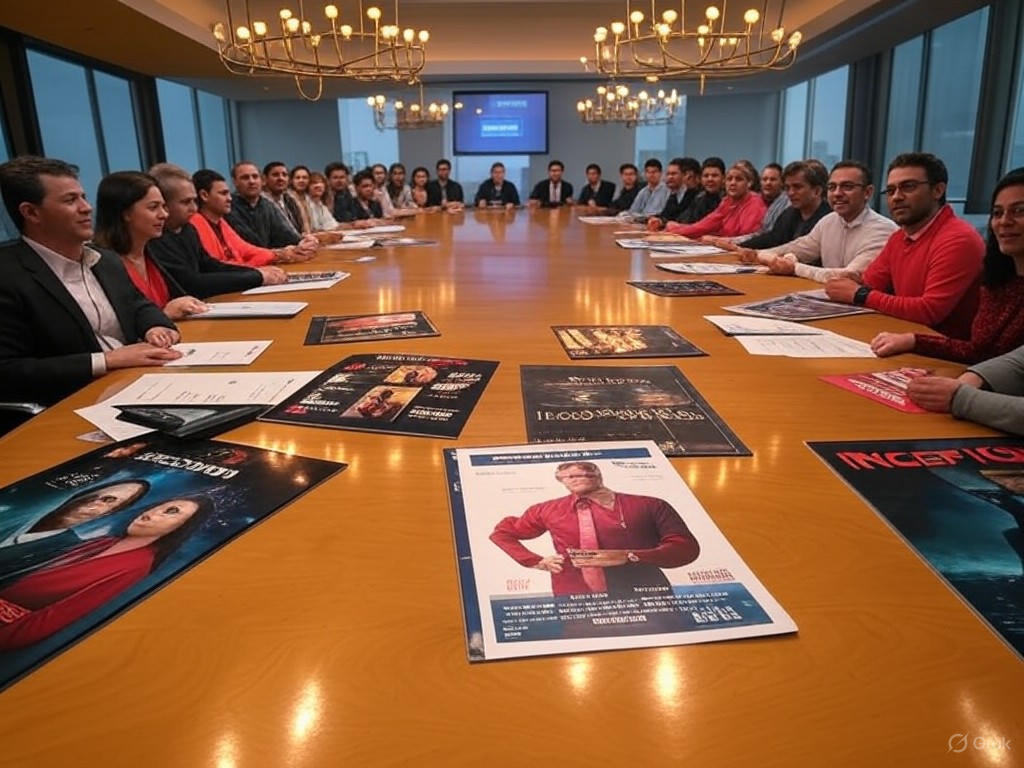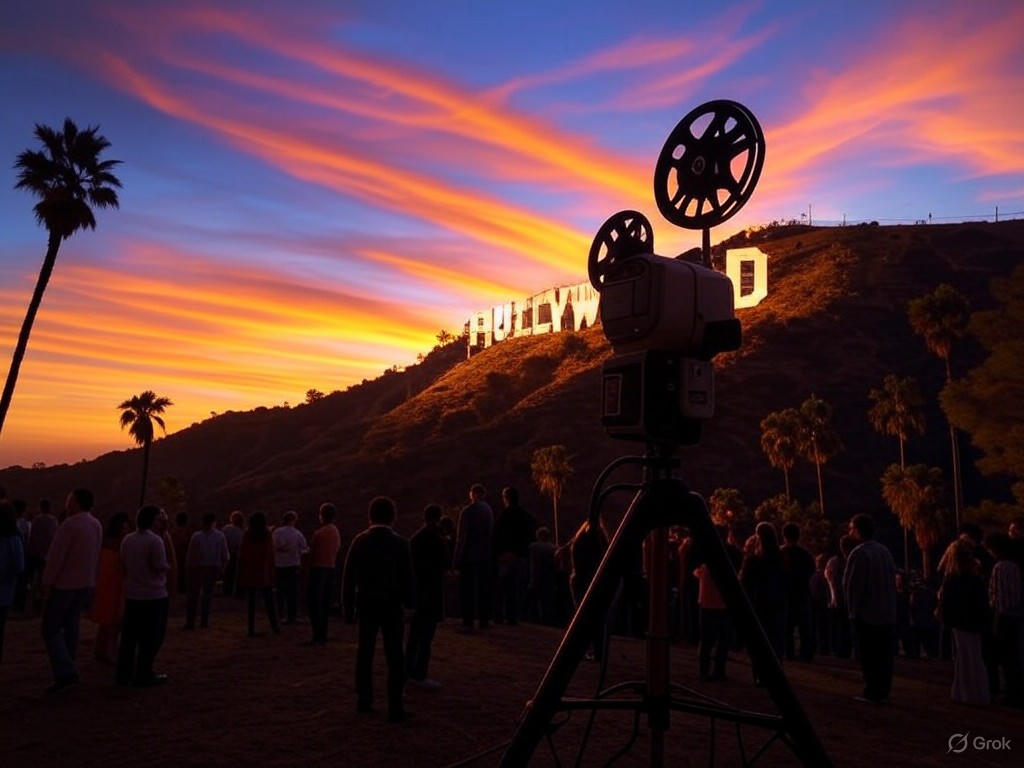Hollywood’s Best Films: A 21st Century Redefinition
In an era where the silver screen often reflects the fleeting whims of cultural fads, the New York Times' recent poll of 500 industry figures offers a refreshing, if contentious, glimpse into what truly endures. Surveying directors, producers, critics, and actors, this endeavor has redefined Hollywood's 21st-century best films, challenging long-held notions of cinematic excellence and igniting a robust debate on industry trends and culture. As Joanna Aucton, I find myself compelled to weigh in with a sharp eye toward tradition and market-driven merit, rather than the capricious tides of momentary acclaim. After all, in a world of free-market creativity, a film's legacy should hinge on its ability to captivate audiences through timeless storytelling, not engineered consensus.
This poll, detailed in the New York Times' comprehensive feature on Hollywood's evolving canon New York Times Poll on 21st-Century Films, reveals a landscape where blockbusters like Inception and The Social Network rise to prominence, edging out earlier darlings such as The Lord of the Rings trilogy. Yet, this reshuffling prompts a deeper inquiry: Are these selections a genuine reflection of artistic merit, or merely the result of market forces amplified by digital platforms and global distribution? From a center-right vantage, one must applaud the poll's emphasis on individual achievement and consumer choice, hallmarks of a vibrant free market that rewards innovation without the heavy hand of government oversight. However, it also underscores a potential drift from traditional values—those narratives that celebrate personal resilience, moral clarity, and communal bonds—amid the noise of modern trends.
The Shifting Sands of Hollywood's Industry Trends
Hollywood, ever the mirror of societal evolution, has long navigated the tensions between commercial success and cultural relevance. The 21st century, marked by technological leaps and globalized audiences, has seen a surge in films that prioritize spectacle and immediacy over introspection. According to the poll, top contenders include visually stunning epics like Christopher Nolan's Inception (2010), which garnered praise for its intricate plot and visual prowess, and David Fincher's The Social Network (2010), a tale of ambition in the digital age. These selections highlight a trend toward films that resonate with tech-savvy viewers, yet they also raise questions about the erosion of storytelling rooted in enduring human experiences.
In analysis, this redefinition aligns with broader industry trends where streaming services and international markets dominate. A report from Variety on Hollywood's Global Shift notes that foreign box office earnings now account for over 70% of major studios' revenue, pushing creators toward universally appealing narratives—often at the expense of niche, character-driven stories that once defined American cinema. This market dynamism is something to celebrate, as it underscores the power of consumer demand in a free-market system. Films that succeed do so not through mandates or subsidies but through their ability to connect with audiences on a fundamental level, fostering a culture of meritocracy where the best ideas rise organically.
Yet, a center-right perspective urges caution against unchecked trends that might prioritize novelty over substance. Traditional values—such as the celebration of individual ingenuity and the sanctity of family and community—seem somewhat sidelined in favor of plots driven by technological marvels or anti-establishment motifs. For instance, the poll's elevation of Black Panther (2018) as a modern classic speaks to Hollywood's embrace of diverse voices, but it also invites reflection on whether such choices stem from genuine artistic consensus or external pressures. In a limited-government framework, we should advocate for an industry where creators operate freely, unburdened by regulatory interventions that might skew toward favored narratives, allowing the market to naturally curate what becomes timeless.

Industry insiders passionately discuss the merits of films like Inception, highlighting how market-driven success shapes cultural legacies in the 21st century.
Evidence from the Poll and Beyond
Delving into the evidence, the New York Times poll paints a data-rich portrait of Hollywood's 21st-century landscape. Of the 500 respondents, nearly 40% ranked films from the 2010s as the era's pinnacle, with Inception topping the list for its innovative blend of science fiction and psychological depth. This data, corroborated by Wall Street Journal Analysis of Film Economics, reveals that high-budget spectacles correlate with financial returns, as studios like Warner Bros. and Disney leverage global marketing to maximize profits. Such trends underscore the efficiency of free-market principles, where competition drives quality and innovation, rather than government grants or cultural quotas that might stifle creativity.
However, balanced scrutiny demands acknowledgment of counterpoints. Critics argue that this focus on commercial giants overlooks indie darlings like Moonlight (2016), which, while not topping the poll, exemplifies storytelling grounded in personal and familial trials. Drawing from IndieWire's Examination of Film Culture, these films often thrive in niche markets, proving that a decentralized industry—free from excessive regulation—can still nurture diverse voices. Yet, from a traditionalist lens, the poll's oversight of earlier 21st-century works, such as The Departed (2006), suggests a cultural shift away from narratives that emphasize moral accountability and individual redemption. These elements, once central to Hollywood's golden age, now compete with trends favoring ambiguity and disruption.
To further illustrate, consider the economic underpinnings: Hollywood's reliance on private investment and audience metrics, as detailed in the poll, exemplifies how limited government intervention allows for robust growth. A study from The Hollywood Reporter on Industry Metrics indicates that films with strong traditional themes—family sagas or tales of personal triumph—continue to perform well overseas, where audiences value universal motifs over localized agendas. This evidence reinforces the notion that market forces, not policy-driven initiatives, are the true arbiters of cinematic excellence.

A timeline illustrating the transition from traditional storytelling in films like The Departed to the tech-infused narratives of the 2010s, as debated in recent industry polls.
Toward a Balanced Legacy: Embracing Market Wisdom
In conclusion, the New York Times' poll serves as a vital barometer for Hollywood's 21st-century best films, illuminating trends that both invigorate and challenge the industry's soul. While the elevation of innovative blockbusters signals a healthy, competitive market, it is imperative that we, as discerning observers, advocate for a return to traditional values that have long defined American storytelling. Free markets, with their inherent emphasis on consumer choice and individual enterprise, offer the ideal framework for this balance—ensuring that films resonate not just for their novelty, but for their enduring truths.
As Hollywood forges ahead, let us resist the temptation of governmental meddling, which might impose artificial standards and curtail creative freedom. Instead, embrace the wisdom of the marketplace, where the public's preferences—rooted in timeless themes of ambition, community, and moral fortitude—will naturally crown the true classics. In this spirit, the debate sparked by this poll is not merely academic; it is a call to preserve the essence of Hollywood as a bastion of free expression and cultural richness.

Iconic scenes from 21st-century films that embody traditional values, reminding us of the market's role in sustaining cinematic heritage.

